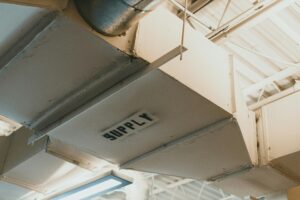Every day we wake up, drink a cup of coffee, and get ready for work. Following are a handful of stories from around the tech world condensed to fit into one single cup of coffee. These are the things you need to know before you step foot out of your door (or in front of a webcam) and into the real world this morning.
So sit back, grab a cup, and start your morning off right with a few “Quick Bytes” from Innovation & Tech Today.
Chess-Playing Robot Breaks 7-Year-Old Boy’s Finger
A chess-playing robot broke a boy’s finger during a game in a Moscow tournament Tuesday. The boy, 7, rushed the robot, which may have mistaken the boy’s finger for a chess piece, according to Sergey Lazarev, president of the Moscow Chess Federation.
The AI-powered mechanical arm was playing three matches simultaneously when the event occurred. Lazarev said the robot was rented and had been used in tournaments many times before.
The boy continued to compete in the forum after his finger was put in a cast, Lazarev said on Thursday.
Q2 Earnings for Netflix is Better than Expected
Netflix’s Q2 earnings report revealed the streaming service lost fewer subscribers than analysts anticipated. The projected loss was around 2 million subscribers, but Netflix was able to retain half of that viewership, losing only 970,000.
Shares rose after hours on the back of the earnings report.
Analysts credit the latest season of Stranger Things, one of Netflix’s most popular shows, as the x-factor that softened the blow. Netflix released the season in 2 parts, likely in an effort to stem the tide of subscriber drop-off — a tactic that seems to have paid off.
Netflix also reported that quarterly revenue grew 9 percent from a year ago, to $7.97 billion, missing expectations. Profits of $3.20 per share were up 7 percent from a year ago and beat expectations.
A Meteoroid Hit the James Webb Telescope Causing ‘Significant Uncorrectable Damage’ NASA Says
NASA reported Wednesday that a meteoroid struck the James Webb Space Telescope (JWST), causing irreparable damage to the observatory. The impact occurred between May 22 and 24, according to NASA.
The damage was caused by a large micrometeoroid and resulted in a “significant uncorrectable change” to segment C3.
JWST’s sensors have detected six deformations on its primary mirror panels, all of which are attributed to micrometeoroid strikes.
“Each micrometeoroid caused degradation in the wavefront of the impacted mirror segment, as measured during regular wavefront sensing,” NASA said.
The telescope’s performance continues to exceed expectations, according to NASA, but the impact fundamentally reduces the accuracy of the data collected.
Researchers Have Developed More Efficient Semitransparent Solar Cells
Researchers at the University of Michigan have developed a way to develop semitransparent solar cells at scale.
Solar cells have traditionally been opaque, making them ideal for roofs. Now, researchers have created semitransparent solar panels, which means they can be used for windows. This means houses of the near future could be several times more efficient in energy production created by solar panels.
The semitransparent organic solar panels have lagged behind silicon-based opaque ones for years due to engineering challenges such as low efficiency and short lifespans, but recent work out of Forrest’s lab has achieved record efficiencies of 10% and estimated lifetimes of up to 30 years, according to Inceptive Mind.











